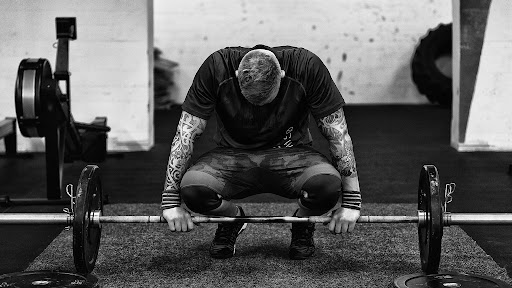Since the COVID-19 pandemic began, an astounding 4 out of 10 people have reported symptoms of anxiety or depression, up from 1 out of 10 in 2019. The virus-induced disruption of everyone’s routine (e.g., childcare, nutrition, wellness, and exercise) contributes to the increase in mental health concerns during this time.
Strength training not only increases muscle mass, strength, and fat loss, but it also has a significant positive effect on our daily mindset. Indeed, all forms of exercise aerobic, resistance training, swimming, and yoga provide significant benefits to the brain and our ability to persevere in the face of adversity.
Increased Mood And Energy
Depression is a mood disorder that causes a great deal of sadness and apathy. A recent study published in the Journal of Psychology discovered that participants’ moods improved significantly following a single session of exercise.

For those lifters who are unsure whether completing a single workout is truly worthwhile, the evidence indicates that it can positively affect one’s attitude, mindset, and mood. Even more encouraging are the findings of a study published in The American Journal of Epidemiology, which found that adults who engaged in regular physical activity had lower rates of long-term and acute depression, regardless of their age, gender, ethnic origin, financial situation, or body mass index, among other variables.
As with depression, anxiety-related disorders have seen a dramatic increase in prevalence over the last decade. By definition, anxiety is a mental health condition that causes an individual to experience excessive worry, unease, and nervousness in response to a specific situation or unknown circumstance.
Exercise has been demonstrated to benefit anxious individuals unequivocally. Within the first week of resistance training, a 2020 study published in the journal Scientific Reports discovered that resistance training reduced anxiety symptoms in young adults. Additionally, a 2017 meta-analysis published in Sports Medicine discovered that resistance training improved anxiety symptoms in both healthy and ill participants.
The bottom line is that maintaining a consistent level of physical activity will cause changes in your body and mind that will serve as a buffer against anxious and depressive thoughts and feelings.
Developing A Greater Sense Of Purpose
Taking control of your schedule and scheduling time for resistance training or other vigourous exercise can provide a sense of accomplishment in and of itself. Because so much of our work and social lives are mediated by technology, disconnecting from computer and phone screens and engaging in physical activity provides new perspectives.
Former athletes whose competitive careers ended for one reason or another frequently experience a sense of purposelessness. One such former athlete shared with us that her exercise routine was one of the most beneficial coping mechanisms for the “lost” feelings she was experiencing. Consistent exercise restored her health and, to her surprise, assisted her in reclaiming her inner strength. “It helped me see my future more clearly,” she explained. “It aided me in reestablishing my identity as an athlete, which I was afraid I had lost.”
Developing healthy exercise habits typically requires incremental progress, and motivation typically increases gradually once you begin your training programme. For those who believe they require motivation to begin, it is critical to understand that motivation typically comes after they begin, not before. Due to the fact that the research has not yet determined which type of exercise has the greatest effect on mental health, the current recommendation is to move for approximately 20-30 minutes three days a week.
Improved Sleep Quality And Recovery
Sleep is necessary for physical and psychological recovery. Sleeping well enables the brain to process emotional information. Exercise improves sleep quality and overall sleep satisfaction, according to research. According to a systematic review published in the European Journal of Physiotherapy, moderate exercise is extremely effective at improving sleep quality in both young and older adults. Additionally, research indicates that moderate exercise increases our slow-wave sleep, the phase of sleep during which our brain rejuvenates and processes information.

Additionally, when we sleep well and deeply, growth hormones are released. These hormones contribute to muscle growth and repair, bone formation, and fat loss. On the other hand, sleep deprivation causes the body’s muscles to recover more slowly, as well as lowers mood and increases the release of cortisol, the stress hormone.
We know that exercise can benefit someone who is depressed or anxious in a variety of ways. It is critical not only for symptom relief, but also for improved sleep, which enables the brain to process and manage emotions and situations more efficiently and effectively.








